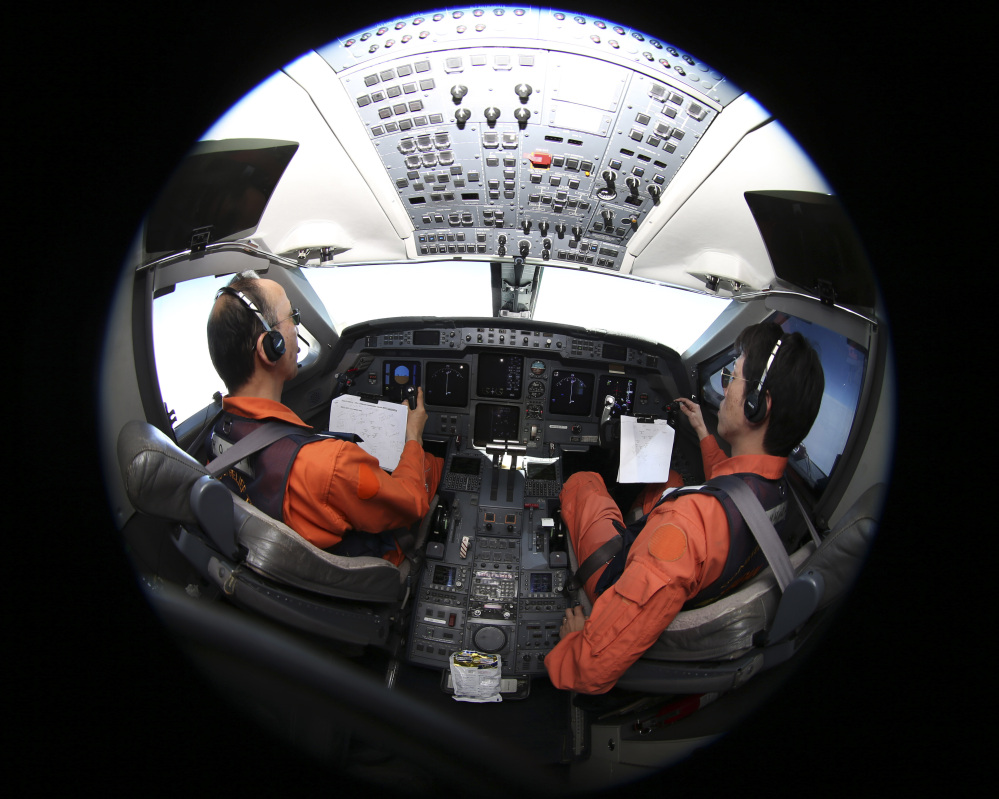KUALA LUMPUR, Malaysia — An aviation industry group is creating a task force to make recommendations this year for continuously tracking commercial airliners because “we cannot let another aircraft simply vanish” like Malaysia Airlines Flight 370.
As low clouds, rain and choppy seas off western Australia hampered Tuesday’s hunt for the missing jet, the head of the operation warned that the 25-day-old search “could drag on for a long time,” and Malaysian investigators said they were scrutinizing the last-known conversation between the plane and ground control.
The search has turned up no sign of the Boeing 777, which vanished March 8 with 239 people aboard bound for Beijing from Kuala Lumpur. A multinational team of aircraft and ships are searching the southern Indian Ocean for the plane, which disappeared from radar and veered off-course for reasons that are still unexplained.
The aviation mystery has highlighted the need for improvements in tracking aircraft and security, according to the International Air Transport Association, a trade association for the world’s airlines meeting in Kuala Lumpur.
“In a world where our every move seems to be tracked, there is disbelief that an aircraft could simply disappear,” said Tony Tyler, the director general of the group whose 240 member airlines carry 84 percent of all passengers and cargo worldwide.
“We cannot let another aircraft simply vanish,” he said in announcing the high-level task force to make recommendations on tracking commercial aircraft.
Malaysia’s government, meanwhile, responding to repeated media requests, released a transcript of the conversation between Flight 370 and air traffic control, which showed normal exchanges as the pilots requested clearance for takeoff, reported it had reached cruising altitude and left Malaysian airspace.
“Good night Malaysian three-seven-zero,” were the final words received at 1:19 a.m. on March 8 by ground controllers at Kuala Lumpur’s international airport. That was a change from what had been originally transcribed as “All right, good night.”
There was no explanation for the change. The conversation was in English, the universal language of aviation.
Investigators were scrutinizing the conversation to determine if there was any stress or tension in the voice of whomever was communicating with ground control, the government said.
It added that investigations were trying to confirm if the voice in the final conversation was that of the co-pilot, as was earlier believed.
Malaysia has been criticized for its handling of the search, particularly its communications to the media and families of the passengers.
Send questions/comments to the editors.



Success. Please wait for the page to reload. If the page does not reload within 5 seconds, please refresh the page.
Enter your email and password to access comments.
Hi, to comment on stories you must . This profile is in addition to your subscription and website login.
Already have a commenting profile? .
Invalid username/password.
Please check your email to confirm and complete your registration.
Only subscribers are eligible to post comments. Please subscribe or login first for digital access. Here’s why.
Use the form below to reset your password. When you've submitted your account email, we will send an email with a reset code.